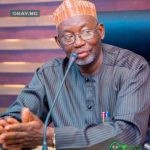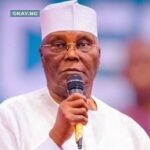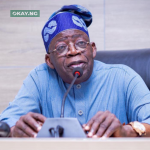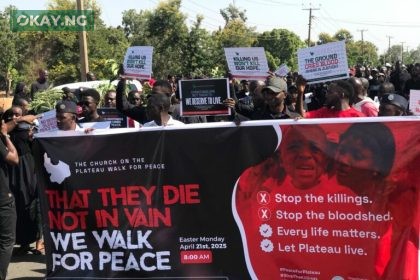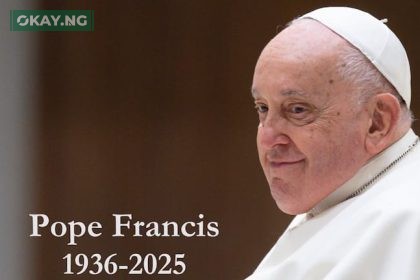The President Buhari administration recently marked its 2nd year in office and the Special Adviser to the president on Media and Publicity, has responded to questions on the midterm performance of the president.
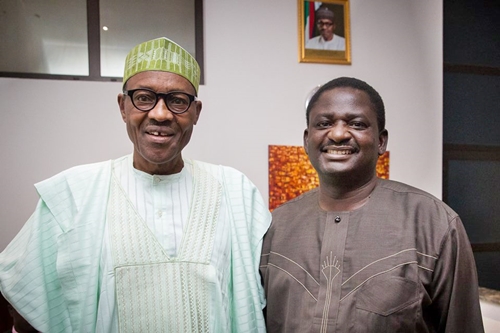
While speaking in an exclusive interview with Daily Sun at the Presidential Villa in Abuja, Femi Adesina, the Special Adviser to the President on Media and Publicity, responded to questions on the midterm performance of the president.
Here are excerpts from the chat;
Two years down the line, to what extent has the president delivered on his campaign promises?
If you are going to assess a government –or do any king of assessment at all –you often need to benchmark it against promises made. So, it is a good time to ask ourselves: what were the promises made? And how far have those promises being fulfilled? We cannot come with a definitive assessment of the government yet, because it is a four-year mandate. So, we can’t come with an assessment that is final. No! So, we ask ourselves: what are the promises the APC and President Muhammadu Buhari made before they came into power? Of course, they were three. The campaign was on three major planks: secure the country, fight corruption and restore the economy.
And two years down the line, I can confidently say that those promises are being fulfilled. The level of fulfillment will differ from one area to the other, but, definitely, they are promises being fulfilled. In the area of security, we know that one major aspect of security in this country is the war against insurgency. There are others like the Fulani herdsmen issue, kidnappings, armed robbery, and all that. We knew where the Boko Haram insurgency was when this administration came in 2015. Boko Haram was running riot round the country. The insurgency started in 2009 from the north-east; it crept into the north-west, north-central, Abuja and Kogi. From Kogi, it could have gone to south-west; and, from south-west, it could have gone to south-south. So, what else should be left of the country? That was the position as at 2015 May.
Don’t forget that after the inauguration of the president, the ferocity of bombings was serious round the country. It was as if Boko Haram knew a Daniel had come to judgement, and they wanted to show him what they were capable of doing. But, then, they saw that the president re-equipped the military, changed the leadership, and restored morale. And he went to different countries seeking help in terms of equipment, and, later, the military was in a position to take the battle to Boko Haram, and chased them out of north-central, north-west, Abuja and limited them to just north-east, and not just the north-east but three states: Adamawa, Yobe and Borno. Soon, Adamawa and Yobe were cleared, and Borno became the only hotbed, and not the whole of Borno but just within the Sambisa Forest. And by December 22, the last camp, called Cam-Zairo (Camp Zero), of Sambisa Forest fell to the military. So, there is a wide difference –just like the difference between heaven and hell –between the insurgency battle today compared to 2015. There is a wide difference.
So, why the difficulty in making sure that Boko Haram is totally decimated?
It is an asymmetric war. Those versed in the art of warfare say asymmetric wars are very difficult to win, because it is not a war in which you have a pitched battle and, when you decimate that opponent, you know that the war is over. You see how they [Boko Haram] are fighting it through sneaky bomb attacks. But you know that is reducing in scope and the success is also reducing in scope. Most times, you see that it is the bomber who is the only victim, so to speak. It is reducing in intensity and ferocity that we believe, one day, it will end.
So, it is only somebody who wants to be very unfair to this administration that will say that war is at the same level it was two years ago. You need to see how nightlife has returned to the cities in the north-east; you need to see roads that have been closed for three-four years now reopened and being used; emirs that ran away from their palaces and Boko Haram took over those palaces are back now. Gombe never had NYSC for about two-three years. Today, NYSC orientation is taking place in Gombe. Damboa-Maiduguri Road, among other roads that were closed in the north-east, has been reopened. So, the intensity of that insurgency has reduced considerably. What we are seeing now is a final mopping up process. There are people that you call bitter-enders; they fight to the bitter end.
Among the terrorists?
Yes. It is the bitter-enders that are left there now. The larger number is no longer fighting. Many of them have even surrendered voluntarily.
You mentioned the economy among the president’s major preoccupations…
Yes, let me talk about the anti-corruption before the economy. Anti-corruption is something this government is fighting vigorously and you can see that the amount that has been recovered is enormous. You can check the statistics given by the Attorney-General of the Federation and the Minister of Information respectively. And those ones didn’t include the latest recoveries. In March-April alone, the amount recovered was staggering. So much money has been recovered that, in the 2017 budget that is being considered, a lot of recovered money is involved. In the 2016 budget, the recovered money was also put in the budget.
When monies are recovered, they are not spent immediately; they are put into special account and then deployed in the budget the following year. A lot is being done, and many people are in court.
But some highly respected members of the National Assembly recently condemned the anti-corruption strategy of the president, describing it as ‘fighting mere symptoms.’ What is your take on that?
They are not infallible. They can be wrong, and I dare say that they are wrong in their assessment of the anti-corruption war. To fight the symptoms, you must start the fight from somewhere, and that fight has started; and there is no retreat, no surrender. Some people are also quick to say there are not too many convictions. Do not forget that the executive does not convict; what it can do at best is to prosecute. It is judiciary that convicts.
You said a while ago that yours is a midterm report, yet the APC National chairman recently declared that the APC-led government cannot get Nigeria out of the quagmire in eight years? What do you make of that?
What he said means that government is a continuum. That is what he is trying to say. A lot of people felt that APC would come and wave a magic wand.
But that was the essence of the change mantra…
Change is a process. Change is not a magic wand that you wave and everything changes automatically.
If you wave a magic wand, then it is make-believe, and it must not last. But change that must be enduring must follow a process. So, the process of change is what we are going through, and it is evident in anticorruption, and the war is progressing. In our political life, you can even see the change, because, before, in any election, the party at the centre must always win. But there are elections that have been lost by the ruling party, showing that the elections were not manipulated. It is evident and part of our national life, and that change will be visible.
How does the president cope leading the nation in absentia, given the spate of prolonged vacations?
You are not quite right. If anybody hears you now and hear prolonged vacations, he will think it has been happening since. It is only this year that we are talking of prolonged vacation. The vacation he took last year was only 10 days. This year, he left in January and returned in March; and he left again in May. You can only rule a country when you are healthy. When ill health comes unfortunately, you have to take care of yourself. It is only a man who is alive that can administer a country, and nobody is immune to ill health.
Read the full interview Here
Still on corruption, many Nigerians are insinuating that it is a one-sided war, and there seems to be some credence to that considering that APC members are hardly affected by the actions of the whistleblowers?
Is there any APC man that has a prima facie case against him that hasn’t been charged? That’s the question we should be asking. You don’t just grab anybody on the street. You only charge those who have cases to answer. And it has always been said that the APC is not like the PDP’s umbrella. Once you creep under the PDP umbrella, everything becomes a family affair. That’s not the situation in APC. If you are in APC, and there is a prima facie case against you, you will be asked to face the law.


